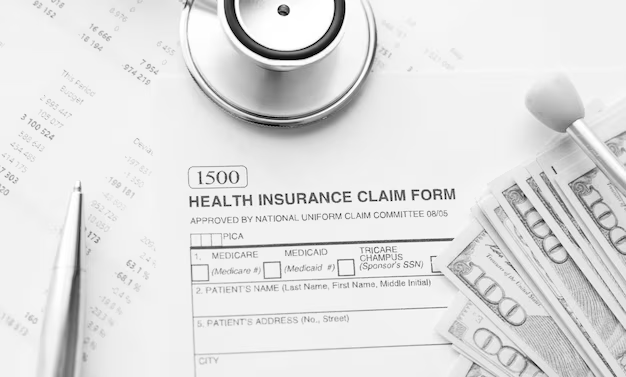Discovering the Flexible Power of an HSA: What Can You Really Use It For?
In the world of healthcare savings, Health Savings Accounts (HSAs) stand out as versatile tools designed to help individuals manage and plan for medical expenses. Whether you're new to the concept or looking for ways to maximize your existing HSA, understanding its breadth and capabilities can lead to smarter healthcare decisions. This guide explores the multifaceted uses of an HSA, shedding light on medical expenses it covers, tax advantages, and more.
The Basics of HSA: An Overview
What is an HSA?
An HSA is a tax-advantaged savings account specifically for individuals with high-deductible health plans (HDHPs). It allows you to save and pay for qualified medical expenses with pre-tax dollars. Contributions are usually made by you or your employer, and the money rolls over year to year if not spent, unlike a Flexible Spending Account (FSA).
Key Features of an HSA:
- Triple Tax Advantage: Contributions, earnings, and withdrawals for qualified expenses are all tax-free.
- Portability: The account stays with you, even if you change jobs or health plans.
- Rollover Benefits: Unused funds roll over annually, accumulating and potentially being invested for future growth.
Exploring Qualified Medical Expenses
H2: Medical Expenses You Can Cover
HSAs are designed to cover a wide range of qualified medical expenses. Here, we delve into common categories and provide guidance on their application:
H3: Routine Medical Costs
- Doctor Visits: General physician visits as well as specialists' consultations.
- Prescription Medications: Most medications prescribed by a healthcare professional are eligible.
- Preventive Services: Screenings, vaccines, and other preventive measures that either diagnose or prevent health issues.
- Dental and Vision Care: Routine dental cleanings and eye exams often fall within this category.
H3: Specialized Treatments and Equipment
- Therapy Sessions: Including physical therapy and psychological counseling.
- Medical Equipment: Purchase or rental of items like crutches, blood sugar monitors, and wheelchairs.
- Alternative Treatments: Some therapies like chiropractic services or acupuncture may qualify.
H3: Chronic Health Management
- Diabetes Management: Insulin and diabetic supplies such as test strips.
- Asthma Treatments: Inhalers and nebulizers required for managing chronic conditions.
Non-Traditional Uses: Beyond the Basics
H2: Expanding Your HSA Horizons
While HSAs are traditionally associated with direct medical expenses, they offer surprising flexibility for other uses:
H3: Long-Term Health Expenses
- Nursing Care: Services such as in-home nursing or hospice care may be covered.
- Future Medical Needs: Set aside funds for potential future healthcare costs, a strategic approach to safeguard your financial well-being.
H3: Retirement Strategy
- Medicare Premiums: Upon reaching age 65, an HSA can be used to pay for certain types of premiums.
- Long-Term Care Insurance: Use HSA funds to purchase long-term care policy premiums up to specific limits.
H2: Tax Considerations and Advantages
Understanding the tax-advantaged nature of HSAs can significantly impact your financial planning:
Tax-Free Contributions: You can contribute pre-tax dollars, reducing your taxable income. For those who contribute post-tax, deductions are available when filing taxes.
Tax-Free Earnings: Interest and investments grow tax-free, offering potential for larger savings.
Tax-Free Withdrawals: Withdrawals for qualified medical expenses remain untaxed, optimizing savings.
Practical Tips for Maximizing Your HSA
H2: Smart Strategies for Effective Use
How can you get the most out of your HSA? Here's a breakdown:
- Allocate Wisely: Estimate your annual medical spending to determine optimal contributions. Max out contributions if possible for additional tax benefits.
- Stay Informed: Keep abreast of IRS updates on what qualifies as a medical expense, as guidelines can change.
- Invest for Growth: Consider investing a portion of your HSA balance to harness potential gains over time, keeping in mind your risk tolerance and time horizon.
- Keep Records: Maintain receipts and records of expenditures to ensure easy access during audits or for tax purposes.
H3: Summary of Key Takeaways:
🔎 HSA Essentials:
- Tax-free contributions, earnings, and withdrawals.
- Portability allows the account to move with you.
- Funds rollover annually, encouraging savings growth.
💡 Versatile Applications:
- Covers a variety of medical expenses: routine, specialized, and chronic.
- Use HSA for future and unexpected health costs.
🧠 Strategic Tips:
- Maximize contributions for tax benefits.
- Stay updated on eligible expenses.
- Consider investing your balance for long-term growth.
H2: Myths and Misunderstandings
Despite their benefits, HSAs often suffer from misconceptions, leading people to underutilize them:
- "HSAs are Only for Short-Term Medical Needs": Contrary to popular belief, they have strategic applications in retirement planning.
- "Investing the Balance is Risky": While any investment carries risk, the potential for tax-free growth can be a compelling feature for long-term savers.
Empower Your Healthcare Journey
HSAs are powerful financial tools allowing individuals to manage healthcare and prepare for future expenses diligently. They enhance your ability to cover medical costs beyond traditional insurance, granting peace of mind during unforeseen health challenges. By fully understanding and utilizing your HSA, you not only secure your present but also lay a firm groundwork for future financial health. As the landscape of healthcare evolves, HSAs remain a steadfast ally in maintaining a proactive approach to your wellness journey.

Related Topics
- a Health Savings Account
- Are Cough Drops Hsa Eligible
- Are Diapers Fsa Eligible
- Are Diapers Hsa Eligible
- Are Electric Toothbrushes Hsa Eligible
- Are Fsa Contributions Tax Deductible
- Are Gym Memberships Hsa Eligible
- Are Health Savings Accounts Worth It
- Are Hsa Contributions Deductible
- Are Hsa Contributions Pre Tax
